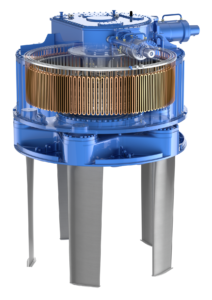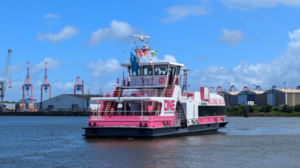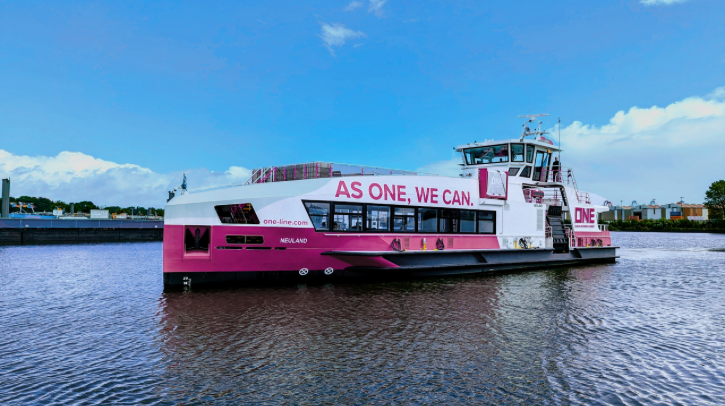The Port of Hamburg has commissioned three new-type 2030 ferries, the first of which will be powered by a hybrid system comprised of two electric Voith Schneider Propellers (eVSPs) and will be operated by HADAG.
Enhanced capacity
Voith developed the 2030 hybrid ferry in conjunction with SET Schiffbau- u. Entwicklungsgesellschaft Tangermünde – a member company of the Heinrich Rönner Group – and ship designers at naValue. For this application, Voith was responsible not only for the propulsion technology but also for optimizing the ship’s hull.
Courtesy of the optimized hull, the new vessel is larger than all of HADAG’s previous ferries, measuring 33m in length and 8m in width. It has space for multi-functional areas and up to 250 passengers while running with reduced energy requirements.

The necessary thrust and a maximum speed of up to 13kts are provided by two 9X5/100 eVSPs – also newly developed – that are fitted with integrated permanent magnet electric motors from Elin Motoren, a subsidiary of Voith Turbo.
Oliver Lenz, sales application manager marine at Voith, said, “Our smallest version to date of the gearless propulsion system expressly requested by the customer ensures the highest level of comfort on board at all times while significantly reducing energy requirements. Characterized by optimal maneuverability, the propulsion system has the distinction of providing a high level of safety, even in the often hectic and sometimes adverse conditions encountered in the Port of Hamburg.”
Advanced training
HADAG ships have been sailing through the Port of Hamburg and on the Elbe River since 1888, with operations spanning 365 days and around 330,000 nautical miles a year. In cooperation with the Hamburg Public Transport Association, HADAG operates all local ferry traffic on eight lines with 20 piers. To be optimally equipped for future economic and ecological challenges, sustainable fleet modernization measures are now in full swing.
Voith held several training sessions with HADAG captains, enabling them to familiarize themselves with the advantages of the eVSP before the first of the three hybrid ferries was commissioned.

Lenz continued, “Aided by CFD simulations and automated optimization methods, our R&D experts created several hundred individual hull design variants and calculated their respective energy efficiency levels while strictly observing the customer’s exacting performance and consumption requirements. Numerous model tests were also carried out, which confirmed the result of our calculations.”
In related news, Uber Boat by Thames Clippers’ brand-new hybrid passenger ferry, Mars Clipper, recently entered operation in central London. Click here to read the full story.



